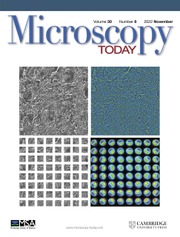The Microscopy Society of America (MSA) and the Microanalysis Society (MAS) recently became affiliates of the Science History Institute in Philadelphia. The Science History Institute (SHI) preserves and interprets the history of chemistry, engineering, and the life sciences. Thus, SHI is a good place to tell the story of microscopy and microanalysis, important research tools in both analytical chemistry and life science.
As affiliates of SHI, our societies will deposit their archives in the collections of the Othmer Library, one of world's foremost repositories for the history of chemistry and life science. Not only will members of our organizations and others be able to access society documents and publications, future historians will be able to research the history of microscopy and microanalysis and explain their importance to science and society. To promote such work, an SHI scholars program (with several funded fellowships) attracts historians of science from around the world to study and write about the history of science.
In addition to collecting books and documents, the SHI building contains an exquisite public museum that tells the story of chemistry as a science and as a commercial enterprise. Also, special exhibitions are presented on various topics ranging from rare oil paintings of alchemists to why things fall apart to the role that chemistry sets played in educating generations of scientists.
The SHI promotes the history of science to the general public in several ways. A number of lecture series inform both specialists and the community about how chemistry and biology have shaped today's challenges and achievements. Over 7,500 artifacts, documents, rare books, and photographs have been digitized and can be searched through the SHI website. Also available digitally is their informative and well-illustrated magazine, Distillations, which publishes the stories behind many of the scientific discoveries and issues that affect our world. Topics of recent articles and podcasts include science education, women in science, oral histories, periodic tables, opioids, dark matter, saving old movies, and the information age (1970–present). These digital resources are accessible at www.sciencehistory.org.
When you are in Philadelphia, the Science History Institute is worth a visit. Located between the new Museum of the American Revolution and Independence Hall, the museum is open, in normal years, Tuesday through Saturday and offers free admission. The Othmer Library may be visited by appointment.



